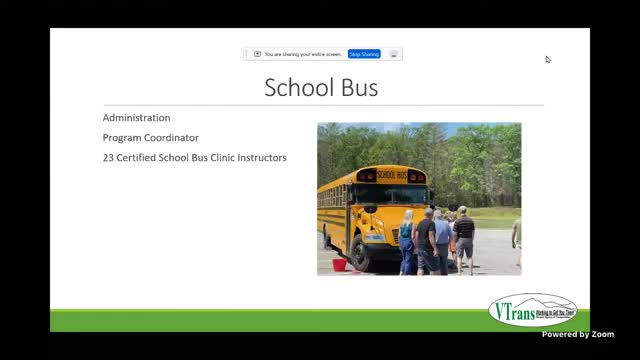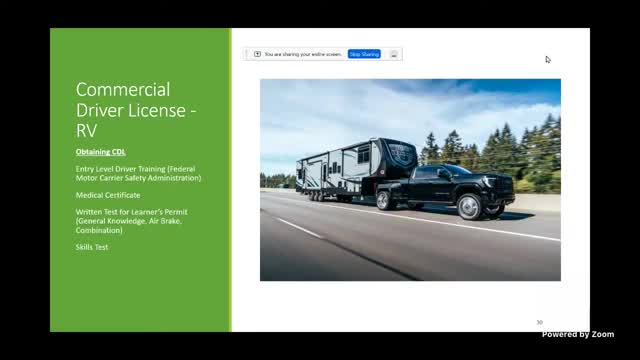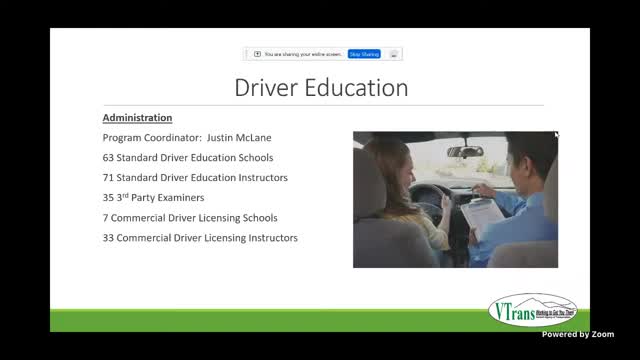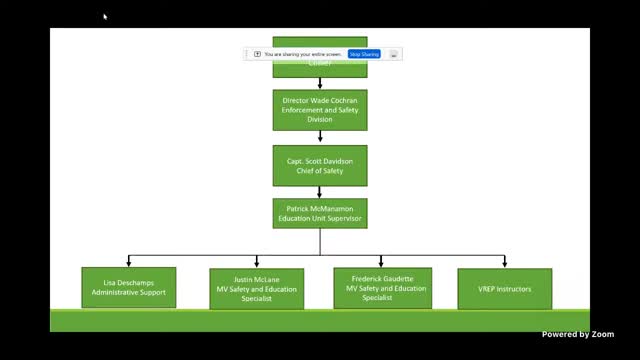Article not found
This article is no longer available. But don't worry—we've gathered other articles that discuss the same topic.

DMV outlines school bus instructor standards, endorsement rules and safety tools including seat-belt and camera options

Committee hears DMV analysis of costs, options for possible RV CDL/endorsement bill

Vermont DMV: private driver-education schools, third-party examiners expanded after COVID

